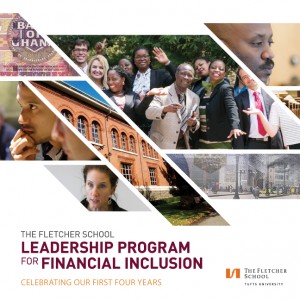“Learning About Our Own Attitudes toward Money Through Money Stories,” by Ignacio Mas & Kim Wilson
by Ignacio Mas & Kim Wilson, CEME Senior Fellows
Money is a complex human convention with deep cultural derivations and an elaborate social etiquette. It is part of the fabric of bonds within family and community. It is also mired in psychological biases and mental heuristics through which we personally come to terms with the barrage of decisions we need to make on a frequent basis.
Given this contextual cocktail, it is not surprising that behaviors around money often appear irrational on first analysis. However, there is always some hidden logic that explains, without necessarily justifying, most observed behaviors. (Critical distinction here: you can explain why a thief took something, but that doesn´t necessarily justify it.) These behavioral idiosyncrasies operate in the background and we easily identify them in others, but we rarely confront them in our own lives.
In our courses on digital money and financial inclusion, we find that getting students to think about their own idiosyncrasies around money is the best antidote against developing excessively judgmental attitudes in interpreting how others, and especially poor people, manage their money. In the Fletcher School´s Leadership Program for Financial Inclusion aimed at financial regulators and the DFI-Fletcher Certificate in Digital Money aimed at emerging market fintech professionals, we ask our students to tell us an interesting story from their own lives or those close to them that has to do with money, which made them look at money in a special or different light. We thought we’d show you the kind of stories that come up.
Ahmed Kamal of the Cairo Governorate in Egypt explains how his grandfather inculcated some lessons on the usage of money around saving, sharing, caring, and celebrating. It nicely sets up an apparent conflict when the grandchildren are first taught to save, then to give it away. The story speaks to the positive moral value we can give to money.
In his story, Joseph Maina, Managing Consultant at Jeypent Limited, tells us of a banana seller who refused to sell all her bananas to one customer. Sounds odd, until you reflect on it and see that one clearance sale would have disrupted her daily rhythm of business, it would have upset a host of regular customers who will be there long after the one windfall transaction is over, and it would have prevented her from interacting with people the rest of the day.

Many stories echo the same themes – grandparents passing along important traditions. Rats and termites eating cash. The crashing wave of fear that suppliers are predatory and that there is not much any of us can do about them. No one really trusting the digital system.
They are also about surprises: the rural grandparent of Mankolo Beyani of Zambia who stored beyond the urban grandchild’s imagination. They are about wisdom: the savings club in Fiorella Arubulu’s story, which more than once rescues families in Peru from being short on a school fee.
And finally, it’s about about an old adage: you are damned if you do and damned if you don’t. This story by Rochelle Thomas of the Philippines sums up what all of us know – you are damned if you save in a bank and damned if you don’t. Generations respond to the lessons of previous generations and come to alternating and opposite conclusions. In his story, Brendan Pierce, of the FinMark Trust of South Africa tells of the awkwardness of only having digital money when people around you are still expecting cash for things like tips.
Cash is “in.” Cash is “out.” Banks are “in.” Banks are “out.” What will be said of digital finance a generation from now: “in” or “out?”

